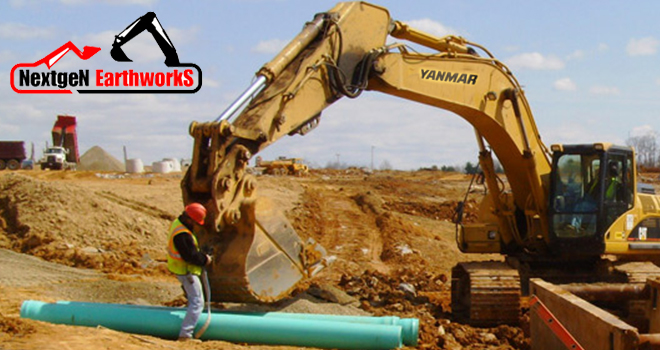One of the most important and an absolutely inseparable aspect of excavation is soil. In other words, to have an excavation project conducted and completed successfully. That is the reason every quality excavation company in Sydney like anywhere else would come up with comprehensive soil testing, before getting on with the excavation.
On this page, we discuss a few aspects of soil testing, which obviously starts with the types of soils. Generally speaking, soils can be classified into three types – Type A, Type B, and Type C.
Soil Type A:
This is the most cohesive and stable type of soil that comes with a released compressive power of 1.5 tons/sq. ft or even more. This type of soil is generally rich in different types of clay, like clay loam, silt clay, and sand clay. This particular type of coil never contains fissured soil or soil that is previously disturbed or has water seeping through it. Besides, this type of soil has never been subjected to vibrations from local traffic or heavy machinery. As per the excavation experts in Sydney, this is the s most stable type of soil for excavation.
Soil Type B:
This is a relatively less stable but still fairly cohesive type of soil, which is not as sticky as the Type A variety. This type of soil comes with an unconfirmed compressive strength of .5 to 1.5 tons/sq. ft. Angular gravel, silt and silt loam, and soils near the source of any vibration or fissure are examples of Type B soil.
Soil Type C:
This is a granular type of soil with an unconfined compressive strength of .5 tons/sq foot or even less. Gravel and sand are the two most abundantly found Type C soil variants. It is the most unstable form of soil, and it is due to this lack of firmness, any type of soil that has water leaking through it is by default categorised as Type C soil, irrespective of its other categories.
Now let us come to the soil testing part of our discussion. It is imperative that a professional company that carries out excavation services in Sydney or anywhere else, performs a visual test, to spot the factors that might compromise the soil strength and intervene with the project. Thus, when it comes to soil testing, it is mainly to find the answers to the following questions…
- Is the soil granular or clumpy?
- Is there any source of major vibration near the excavation site?
- Are there any signs of the soil being previously disturbed by external sources like utility lines?
- Are there any signs of water seepage through the soil at the excavation site?
- Is the soil at the site fissured, or does it contain any cracks or other openings?
- Are there any signs of soil chucks crumbling off the side of any vertically erected excavation wall?
While these are the questions that can be answered by preliminary testing, a provider of excavation service in Penrith or elsewhere will carry out subsequent tests for other in-depth findings. They include….
- Pocket Penetrometer Test
- Plasticity Test
- Thumb penetration Test
Therefore you see, excavation service providers in Wyong or other places would carry out comprehensive soil testing in various ways before they get on with excavation, to find out the best way that they need to adopt for excavation. Thus, you need to hire a quality excavation company that has the ability, technology, and competency to carry out comprehensive soil testing for ensuring a safe and quality excavation service. If you are in and around Sydney, the one and only name that you need to turn to, is NextGen Earthworks. To know further details and let us know your needs and for a free consultation, call us at 0411 644 444. We are accessible 24×7.


 Pitt Town Rd, Kenthurst NSW 2156, Australia
Pitt Town Rd, Kenthurst NSW 2156, Australia

